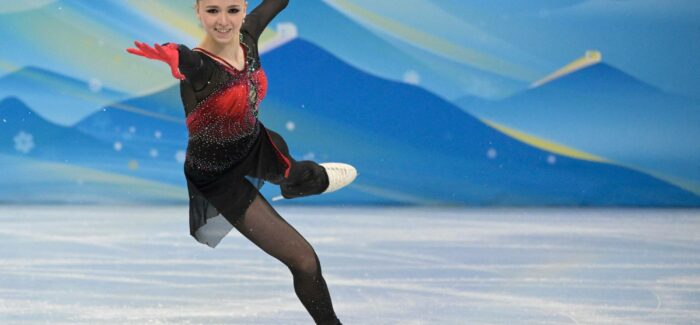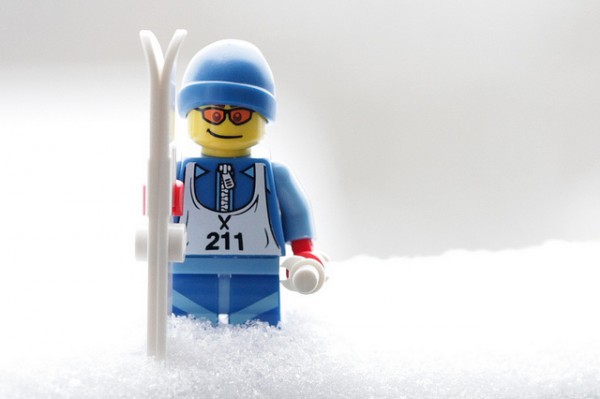Should there be an age limit for the Olympic Games?
As we watched 15-year-old medal hopeful, Kamila Valieva stumble and fall repeatedly through her Olympic free skate programme. She had led going into the free skate. Already in the spotlight, following a failed drugs test, the pressure on this youngster proved clearly too much.
Surprisingly, there is no specific age limit for taking part in the Olympic Games, summer or winter. It depends on each International Sports Federation and the rules they lay down for their respective sports.
The IOC Olympic Charter, Chapter 5, rule 42 (in force from 8 August 2021) states: “There may be no age limit for competitors in the Olympic Games other than as prescribed in the competition rules of an IF as approved by the IOC Executive Board.”
With each Winter Olympics, the figure skaters seem to be getting younger and younger. In the 2022 Beijing Olympics, we have seen the Russian teen skaters take to the ice for their free skate, and – for the first time in Olympic competition – each attempt the four-revolution jumps that are common in the men’s competition.
Valieva was the first female skater to land a quadruple jump at an Olympic Games. It was thanks to the quadruple jump that Russian world champion Anna Scherbakova won the gold medal, and fellow teammate Alexandra Trusova the silver.
It was also the failed attempts of the quad that pushed Kamila Valieva out of the medals in the most humiliating fashion, even though she had been the front-runner going into the free skate.
The issue here is clear. While some young teen skaters can successfully land the quad, it becomes more difficult as they develop. No woman older than 17 has ever landed a quad in competition. Take 16-year-old American skater, Alysa Liu, who finished seventh at the Beijing Games. She was able to land the quad jumps until two years ago but, following a growth spurt, has now stopped attempting them.
Valieva, of course, was already in the spotlight after a court ruled she could compete in Beijing after a failed drugs test. As American Ashley Wagner, 2014 Olympic figure skating bronze medallist tweeted: “she became the face of a problem bigger than her”.
In the free skate programme, Valieva managed to land her first quad but things went very wrong after her first triple, which led to a series of stumbles and trips as the disbelieving audience gasped. She burst into tears on the ice, and sobbed while awaiting the score. This was the second time the poor girl had cried on the ice this week.
Watching her skate on Thursday evening was shocking. It quickly became apparent we were no longer watching an Olympic medal favourite, but rather a young girl, cracking under the strain; a victim of circumstance, whose failed drugs test has played out very publicly in recent days. A child, under immense pressure.
Should she even have been allowed to skate? The Court of Arbitration for Sport had allowed it, saying it would do “irreparable harm” not to allow her to compete. Having witnessed this latest performance on Thursday night, many feel it may have done just that by permitting her to skate.
What will be the long-term effect on this poor youngster?
What about the drugs controversy? The IOC, ROC, Cas and the International Skating Union all have questions to answer, on how this situation was allowed to develop to the point which it overshadowed the Games and allowed a 15-year-old so traumatised.
There are more questions to answer about how a Russian has tested positive for a banned substance when the country is already banned from international competition because of its doping track-record. How come the Russian International Committee are still allowed to compete?
What about the coaches? Surely they’re responsible for the team’s well-being?
The World Anti-doping Agency (WADA) has already confirmed it will be investigating Valieva’s coaches, doctors and entire entourage. Particular attention has been placed on the Russian figure skating coach, Eteri Tutberidze – herself a failed professional skater, with a career derailed by injury. She is known to push young women beyond their limits, and has been criticized for trading the girls’ health for gold medals. Her skaters can land jumps no other competitors can manage. But at what cost? It is alleged that many charges retire when they’re still teenagers, and they tend to suffer devastating injuries along the way, too. As one of her former charges, Surya Bonaly (now a US coach) said: “it’s good to win medals, but you don’t want to be traumatized for the rest of your life.”
What do the experts say?
1984 gold medallist and BBC commentator Christopher Dean, said: “The organisation, the politics surrounding it to get to this point has been a real mess. And the loser is figure skating, the women’s event is suffering from it.”
1980 gold medallist and BBC commentator Robin Cousins said: “I am slightly speechless for all the wrong reasons.
“Someone thought having her do that was better than having her go home to her family and to wait and sort this out, knowing she could have two more Olympics ahead of her.
It was plain for all to see that, as a child, she was unable to cope with the extraordinary pressures of drugs scandal, performance pressure and international competition.
Things need to change.
So at what point does the International Skating Union stop and say enough is enough?
At what point do they put their skaters’ mental health ahead of their art and their desire to win gold?
Increasingly, people are pushing for the age limit in figure skating to be raised above 16. If that happens, Beijing may be the last Olympics any woman attempts a quad. By the 2026 Milan Olympics, quadruple jumps in women’s ice skating could be a thing of the past.
But this surely has to be better than the potential damage to these extraordinarily gifted athletes’ mental health?









